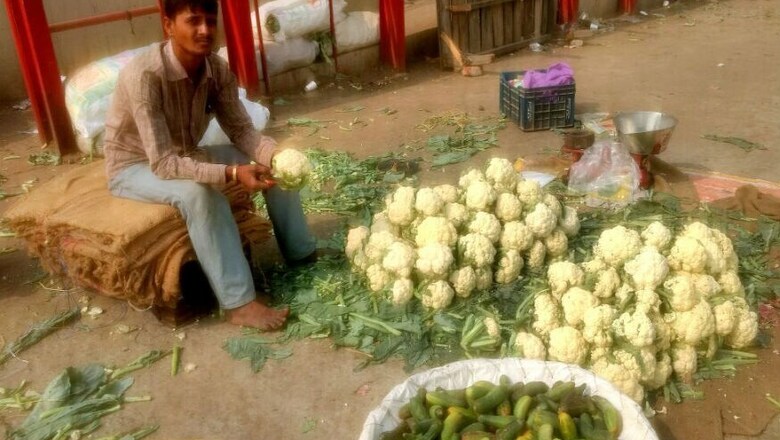
views
New Delhi: Ghazipur Mandi, one of Asia’s largest wholesale fruit and vegetable markets, is reeling from Prime Minister Narendra Modi’s ‘surgical strike’ on black money.
The sudden withdrawal of Rs 500 and Rs 1,000 rupee notes from circulation has brought the wholesale market crashing with traders and small-time labourers suffering huge losses over two days. “Previously we used to sell around 100 boxes of onions, but now hardly 20 are sold through the day. Sales have reduced to almost 20% to 30% now,” says Naresh Bharti, who owns a wholesale vegetable shop.
While the economy on a whole has slowed down in the last few days, it is the perishable markets that have taken the biggest hit. Wholesale prices of vegetables have nose-dived, but there is no consequent dip in the retail market.
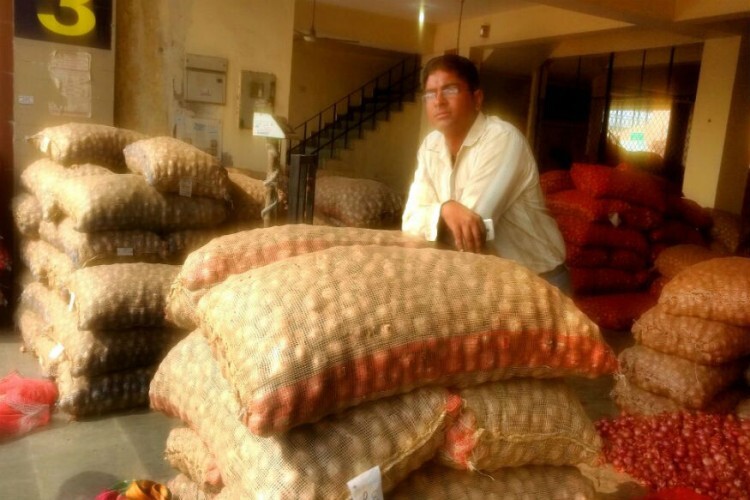
Shops in Ghazipur Mandi wore an empty look on Friday and their owners said the wholesale markets in Indore and Nashik - from where they get most of their supplies - too had closed down after the demonetisation drive.
“There are customers, but there is no money for transaction. Suppose I accept the old notes and give them receipts, the IT department is later going to hound me for accepting the old notes. I wish the PM gave us a few days of advance notice,” said Bharti.
Sarvann Kumar Bajpayee, who too owns a vegetable wholesale shop, pointed to the mounts of brinjals lying unsold in the shop. “They were earlier going at Rs 20 a kilo, but since there are no customers, we have cut it down to Rs 6. Peas were being sold for Rs 120 a kilo, but now the rates are Rs 60-70. The loss over the past two days was around a lakh,” he said.
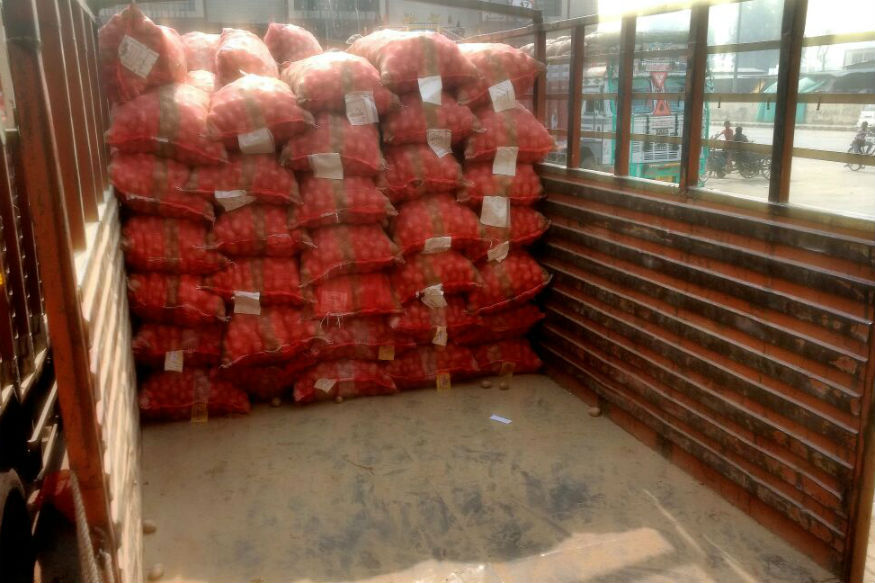
“We have our savings but still are not able to feed ourselves. We are incurring a minimum loss of Rs 50,000 per day. The PM should take notice of this or at least the SC should give us an extension for few days to use old notes,” said Hazi Abdul Waheed, who runs a wholesale onion shop at the Gazipur mandi.
The pinch of the recent currency withdrawal was also being felt at Gazipur Murga Mandi, Asia’s largest chicken and mutton wholesale market.
While most of the shops were closed down, a few disgruntled shop owners were waiting for supplies to reach the market. “What loss estimate can we give? Our shops are almost like closed since the past 3 days. How can we take supplies from breeders when they are not accepting Rs 500 and Rs 1,000 notes? Yesterday, I returned from bank around 9 pm after standing in line for almost 7 hours,” said Aamir Qureshi who runs a wholesale meat shop at the mandi.
Some wholesale shop owners complained that breeders were asking for cheques and were not accepting cash. “How will I give them a cheque? Till now we always operated on cash, and many of us don’t have bank accounts," said Mehboob Qureshi, a chicken dealer.
The full force of this sudden strike on black money is being felt most by small time labourers and daily wage workers. “This move has left us frustrated. We have no money to pay the labourers who load and unload stuff. They are not taking the old currency and we don’t have any new ones to pay them. This has resulted in a 90% sales drop,” said Bhagwan Das, a fruit wholesaler for the last 25 years.
The effect was tremendous on small time traders and labourers because they did not have proper bank accounts. “Big traders like us have current accounts so we can deposit the old notes in large numbers after some time, but these workers do not even have savings accounts. How do they get the new currency,” says Das.
Farmers from Haryana and other neighboring states suffered a lot, as they bring most of the supplies to wholesale markets. “The main problem is being faced by local farmers who come to the mandi to sell their stock. We usually gave them higher denomination notes, but now they are of no use. The new notes are hardly being circulated. For instance, in this row of 25 shops, only two of them had the new Rs 2000 note since morning. Most of the farmers are being turned away since the past two days or are giving us for credit, but we don’t know when we will be able to pay them,” says Satya Narayan, owner of three wholesale vegetable and fruits outlets.
But this move has also helped some in recovering debts from people who were not paying back for a long time. “All my credit has been cleared. Previously I used to get a lakh of unpaid amount after a month of nagging, but since this announcement, almost 3 lakhs have been paid to me by my customers,” says one of the very few smiling shop owners at the Gazipur Mandi.











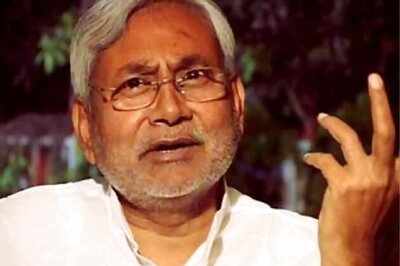
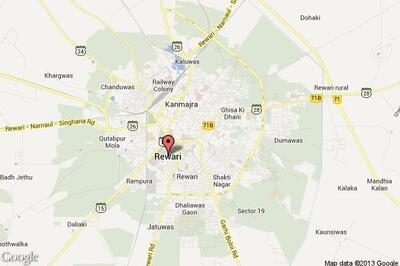





Comments
0 comment